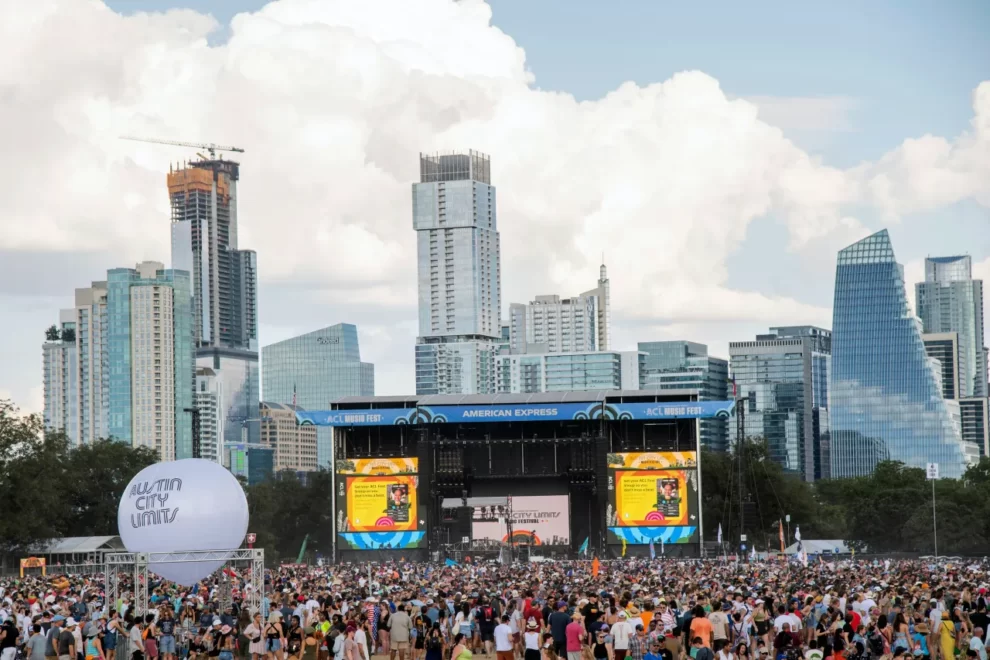A Texas music festival turned sour for some Saturday after traffic issues caused backups for hours and some performances had to be paused for ill festivalgoers.
The inaugural Live at the Station Festival was in Burleson County at the Snook Rodeo Grounds about 18 miles away from College Station. “Something in the Orange” singer Zach Bryan headlined the festival, joined by other country artists like Flatland Cavalry and Treaty Oak Revival.
Some social media commenters and KXAN viewers said the performances had to stop several times while sick people in the crowd were taken care of. Some also likened the event to the failed Fyre Festival. Many attendees also called for refunds on social media.
In response to these concerns, event organizers said they prepared for the festival for months with local and state agencies and with a traffic engineer for pedestrian and vehicle traffic. Anticipating traffic, organizers said they opened the parking lot two hours earlier than planned.
Organizers said over 30,000 people attended the first Live at the Station Festival. They said they are working to improve the festival for its 2024 event.
“We understand attendees’ frustration concerning traffic flow in and out of the venue and acknowledge we have some work to do and have already started on new ways to alleviate traffic congestion. We take pride in delivering a great consumer experience and acknowledge we missed the mark in certain areas,” a statement said in part.
Organizers said the festival did not run out of water, but they are looking to see what the issue was with guests reporting no water available.
Traffic concerns
Festival attendee Heidi Atkins said the festival was “disorganized” and “dangerous.” She saw the most issues when leaving as she did not see personnel leading people out of the venue or directing traffic.
“People were pushing people all crowding to the exit, like almost trying to trample over people,” she said.
Atkins said there was little lighting set up in the parking field and there was no cell service to call for rides. She saw people paying strangers for rides back to College Station.
She said a 1.5-hour trip from Georgetown turned into an over five-hour trip after the concert ended.
Burleson County Judge Keith Schroeder said this event was by far the largest event the county has seen in a year. He said the event was “frustrating at times. He heard there were some injuries and arrests at the festival and that organizers ran out of water late in the event.
He said traffic was his biggest concern after the event. An annual Chilifest Music Festival is typically held at the site, but Schroeder said shuttles are used to reduce traffic and parking needs.
He also said there may have been a miscalculation of where attendees were coming from, likely because of the large population of college-aged attendees from nearby College Station. He said organizers thought attendees were coming from a wider area.
Schroeder said there are serious concerns that would need to be addressed before another event permit is approved.
A statement from the festival’s traffic engineer, Tim Lomax, said a study was done to look at traffic entering and leaving the venue, and a new driveway was added for one of the parking areas.
“Although we took extensive time to determine the best routes for festival attendees, those are being adjusted for the future,” Lomax said in a statement. “We appreciate the feedback as with all large first-time festivals of this nature there are issues that arise. We will be addressing all concerns.”
Lomax said FM 60 will be a four-lane road when the 2024 festival is scheduled to happen. This will allow cars to more safely enter and exit.
Concert safety
Following the deadly Astroworld concert in 2021, a Texas Task Force on Concert Safety launched to create a report of recommendations and strategies to keep concertgoers safe.
In April 2022, a nine-page report was released with suggestions like requiring centralized on-site command and directing organizers to be clear on which agencies will respond to a 911 call. It also suggested a statewide template for permits.
Source: KXAN















